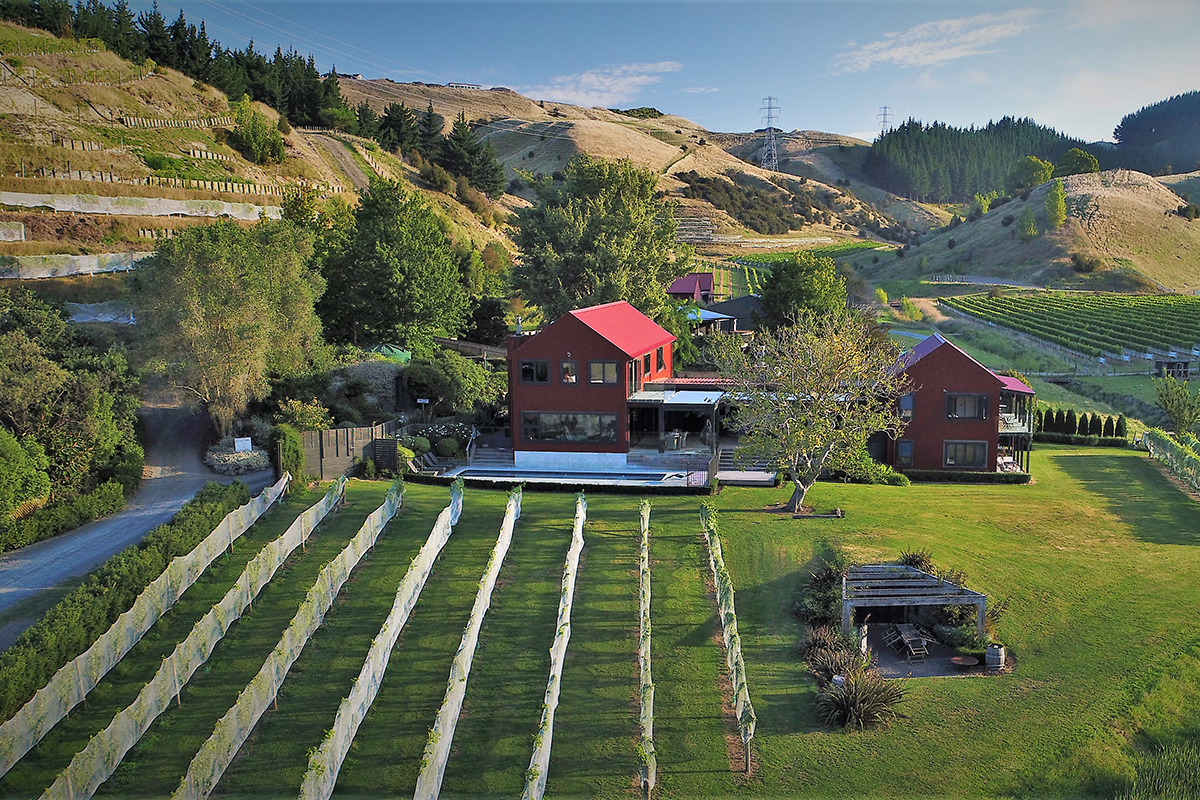The perception that visiting Hawke’s Bay may put undue pressure on the region’s infrastructure is impacting businesses right across the visitor economy, says Hawke’s Bay Tourism chief executive Hamish Saxton.
This is something BayBuzz has heard directly from businesses also. While bookings are down, there is also a desire and need for some ‘good news’ and ‘positive stories’, we’re told.
Saxton said that with 90% of the region’s visitor economy businesses operating and 70% of our Hawke’s Bay Cycle Trails open, “Hawke’s Bay is absolutely ready and willing for visitors”.
Justine Seymour-Wilson, who runs Kiwiesque Lodge in Esk Valley with her husband, said due to the timing of the flood the business lost $133,000 in the first six weeks that followed because that would normally have been their busiest time. She believes that by September, they are likely only have brought in about a quarter of what they normally would, although August bookings appear to be picking up. That’s not to speak of the costs they’ve incurred getting their lodge surrounds and vineyard cleaned up – a key attraction of the accommodation.
The lodge, one of only a few accommodations in Esk Valley, is up and running; she’s hoping that by spring the grass will be green again and bookings will be healthy once more. The Valley clean-up is gathering momentum, and someone with experience of the Christchurch Earthquake has been put in charge, she said.
“So, I think we’ll be looking great and the valley will get there eventually as we are all so passionate to get it back to the way it was.”
But Seymour-Wilson said it’s getting the message out that’s been hard.
“We are doing advertising but it’s pretty hard when you are spending all this money to get your property back [into shape] but you’re not making any income. Our accommodation wasn’t hit, it still looks like it always was and is still amazing but it’s harder because it’s Esk Valley and people aren’t coming back to Hawke’s Bay as much.
“[Our normal clients are] corporates, families, birthdays, small weddings. Lots of families or friend groups usually. We are starting to get the Australians coming back, we have a couple of good bookings for December,” she said.
Some positivity did arrive at the lodge recently, when Seymour-Wilson hosted a two-day course for women from the primary sector who had been severely impacted by the cyclone. The women came from places like Waipukurau, Napier, Gisborne, Tolaga Bay, Wairoa, Otane and Porongahau to support one another and create a network for support going forward.

Put on by the Agri-Women’s Development Trust and part-funded by MPI, the idea was to pause, step away from the isolation, stress and loss caused by Cyclone Gabrielle and rebuild their energy and set up for the road ahead, said Trust general manager Lisa Sims.
It was important that the event was able to support victims of the flooding and meaningful that it took place in the devastated Esk Valley, Sims said.
Not only did the course provide some income for Kiwiesque Lodge, but Seymour-Wilson said the experience made her realise how much trauma she was still holding inside.
“For me it was amazing and it was the friendship we built just in those two days and that will hopefully continue, when I would never have met any of them otherwise.”
Along with the camaraderie and friendship, she said learning how to cope with the stress going forward was invaluable. “I just think that was what everyone needed,” she said.
Saxton said the cost-of-living crisis was exacerbating the impact of public perception, because people were tightening their wallets.
“We are working hard to ensure potential visitors to Hawke’s Bay know that the region is open for business, however winter has traditionally been our low season and also the increasing cost-of-living is having an impact.”
Research from Southern Cross Future of Travel in April indicated that Kiwis were likely to make trade-offs thanks to the rising cost-of-living, he said.
“Their results show 83% of New Zealand travellers will try and reduce the cost of any travel they do by booking cheaper accommodation (38%), taking fewer trips overall (35%) and taking shorter trips (33%). Anecdotally, our locals are not travelling between centres as much right now, perhaps as a result of roading and traffic perceptions,” Saxton said.
Public Interest Journalism Funded by New Zealand on Air.

